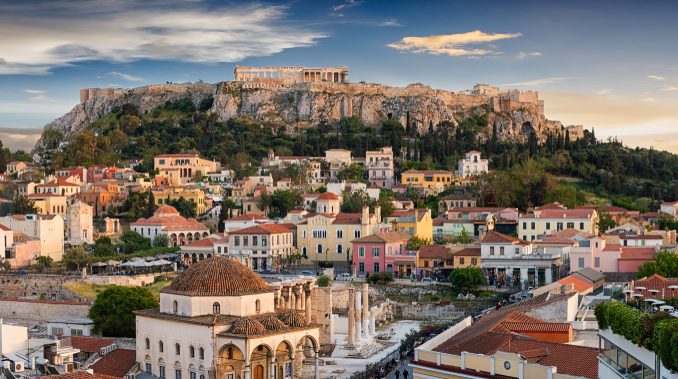
I’m not sure this place even has a name, and I know you’d never find it online. Tucked away, just off the village’s main square, I can’t even recall, for the moment, how we got here from the ship. Disembarking from our gulet, a big, wooden sailboat that looks like it could carry pirates, walking the gangway just before golden hour, our small group hiked up a series of small, steep pathways to a white, blue-domed church crowning a big hill.
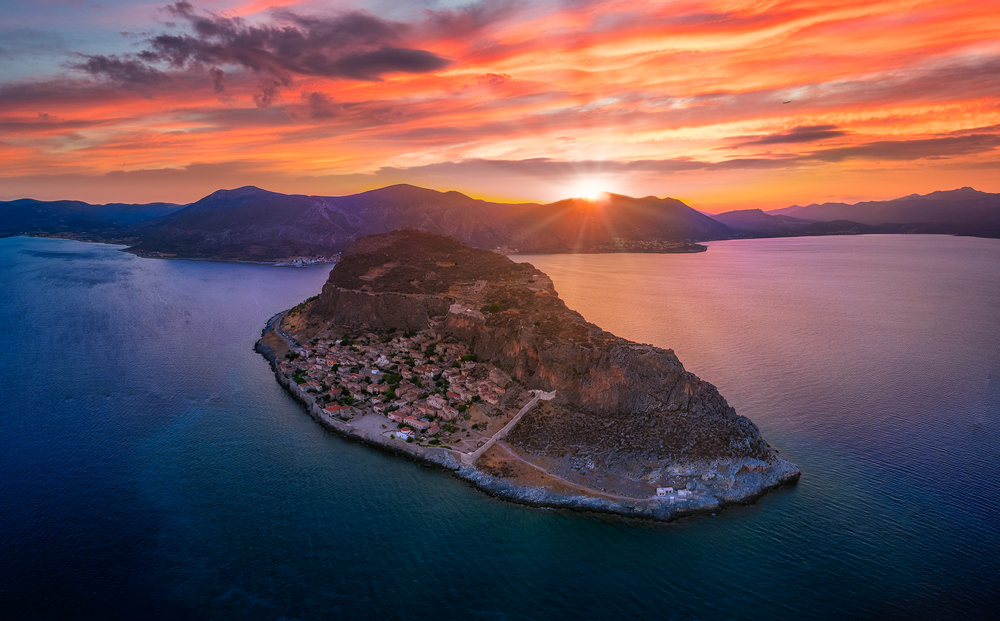
An Aegean panorama spread out at its feet, the aquamarine turning, by shades, to burnt orange, as the sun drops toward the sea.

With the light now ebbing fast, we make our way back down, toward the winding streets in town, past scenes of small-town life—priests in black robes, big crosses hanging from their necks, kids riding by, getting their last bit of time on their bikes before dinnertime.
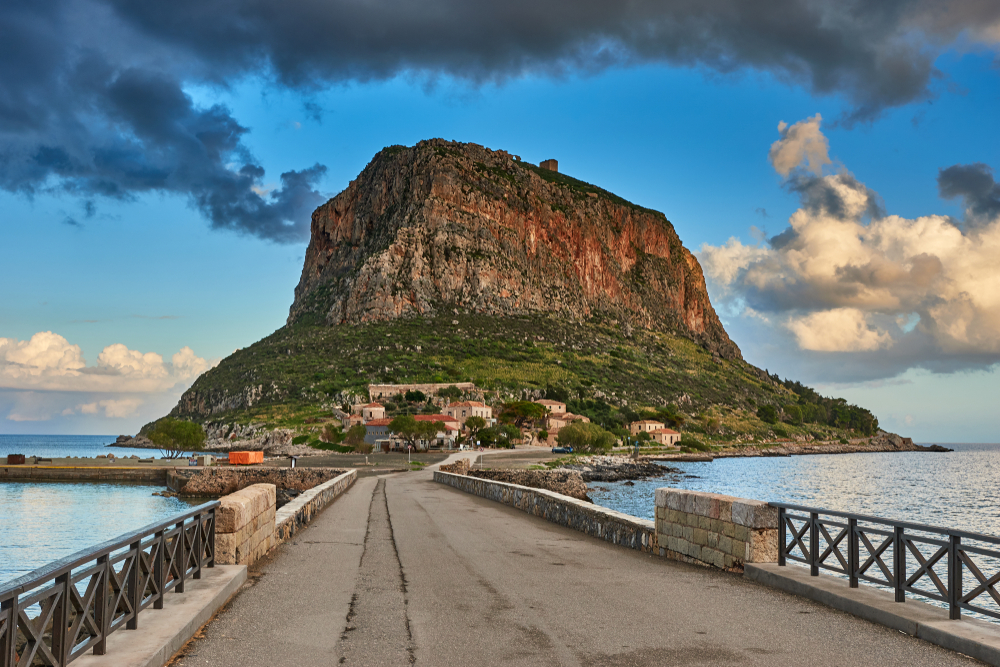
Arriving at the tiny taverna, I see that it has four tables and no menus. What’s for dinner? Whatever they made that day. How much does it cost? Whatever we think is right. We feast on heaps of steaming, buttery fish, caught and brought in just that morning from the harbor across the way, as well as salty olives from the grove up on the hillside, and fresh bread paired with enough tzatziki to fill a swimming pool. Then, we settle in for a one-man show. The owner, a little cigarette dangling from his lips, tunes his guitar, then entertains us, song after folk song, as we sip ouzo and clap along.
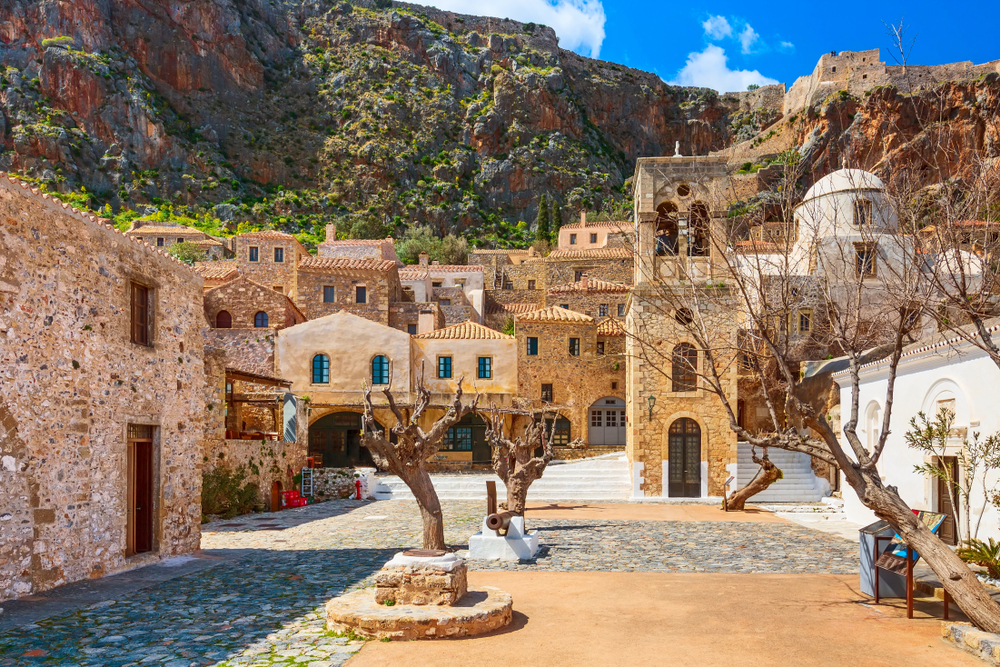
Where’s the ship? We don’t care, not for the moment, anyway. We’ll find our way back at the conclusion of the show, whenever that will be, as the old man plays us into the night.
I’m somewhere in the Dodecanese, an Aegean island group spread into an arc, a long way from Athens, but close to the Turkish mainland. This small island is the Greece that few get to see. As the country reopens to American travelers, most will flock to destinations that are understandably popular with tourists, from the rollicking beaches of Mykonos to the picture-perfect sunsets on Santorini. But, during more than half a dozen visits here, I’ve learned that this country rewards those who search beyond, with food, wine, unforgettable characters, and experiences that remain with you for a lifetime.

For example, the Peloponnese. On a subsequent trip to Greece, I pile into the back of a Mercedes taxicab and make my way west, crossing the Corinth Canal about an hour out from Athens, the steaming streets of the city already feeling like another world.
This famous peninsula, home to Sparta, snow-capped peaks, and miles of rolling groves, grows some excellent wine. While oenophiles from abroad have traditionally looked askance at Greek vintages, locals here will tell you that they’ve always kept the best for themselves, exporting only the leftovers, so you’ll have to visit their vineyards to get a true taste.
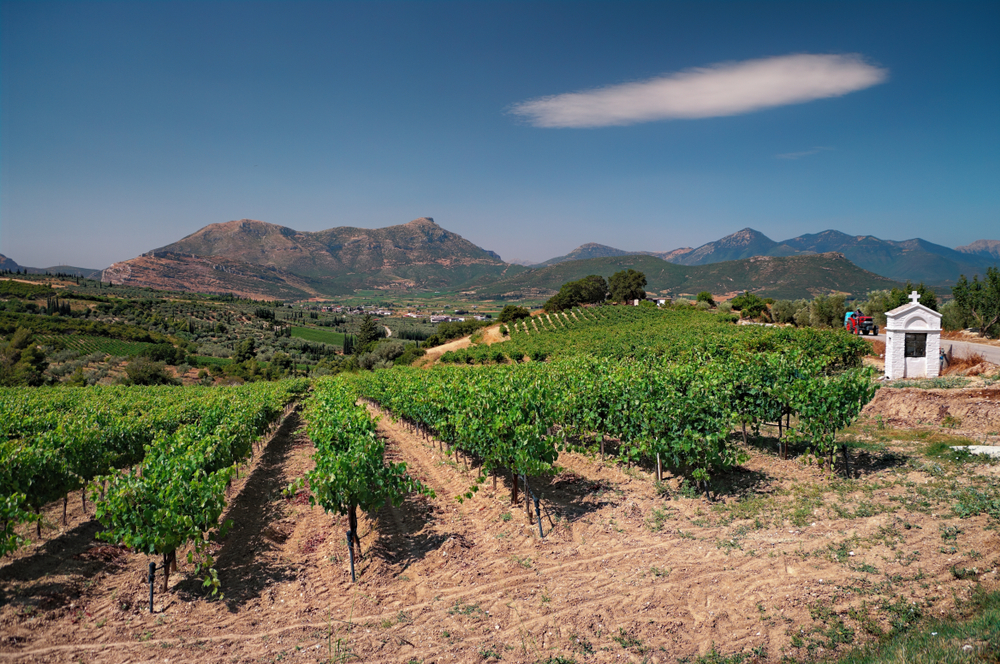
I do, at Estate Theodorakakos. First, I tour nearby Monemvasia, which was once a powerful fortress. Settled in the sixth century, this Gibraltar-like rock juts into the sea, its Byzantine churches and medieval cobblestone lanes connected to the mainland by a 650-foot causeway. After a visit, walking the cobblestones, I backtrack in the Mercedes through terraced vineyards, near a route once used by the ancient Spartans to reach the coast.
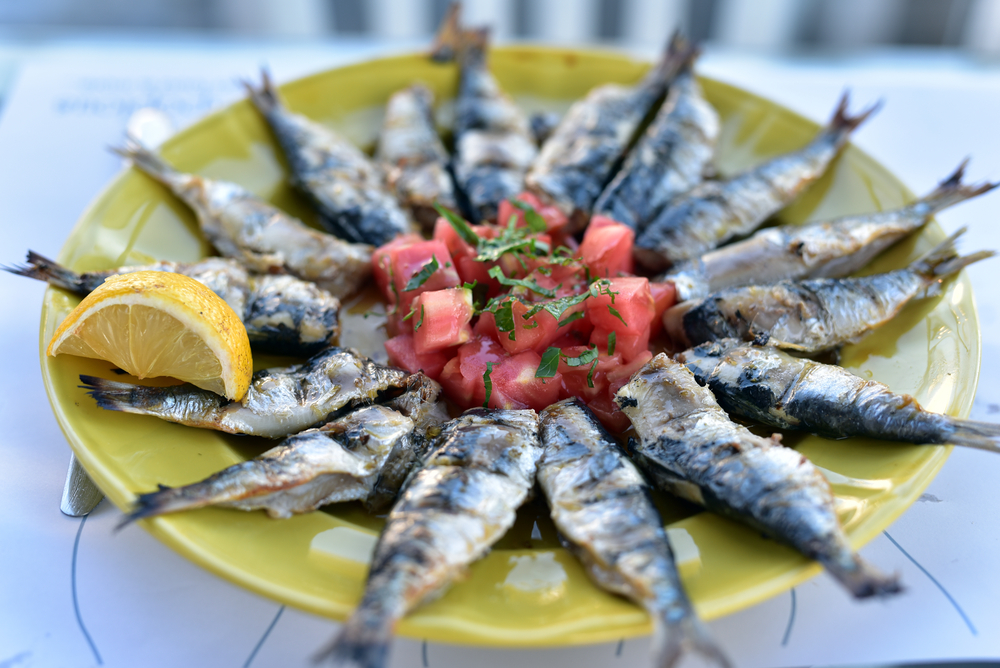
Arriving at the estate, I meet the owner, Nikos, and hop into the back of his dusty old pickup truck, getting an impromptu tour of his 75 acres of dry whites and reds. Basking in the late afternoon sun, he tells me that the grapes thrive in this volcanic soil, caressed by the prevailing winds that blow from the Aegean to the Black Sea.
Afterward, Nikos takes me into the castle-like winery, telling me that wines grown here in Laconia (the southeastern part of the peninsula) were once sent under sail as far as Venice and Genoa. “And they were favorites at the noble courts of Constantinople,” he adds. And while his own family winery is just about a century old, it’s all certified organic, and he uses only local grapes in his award-winning vintages.
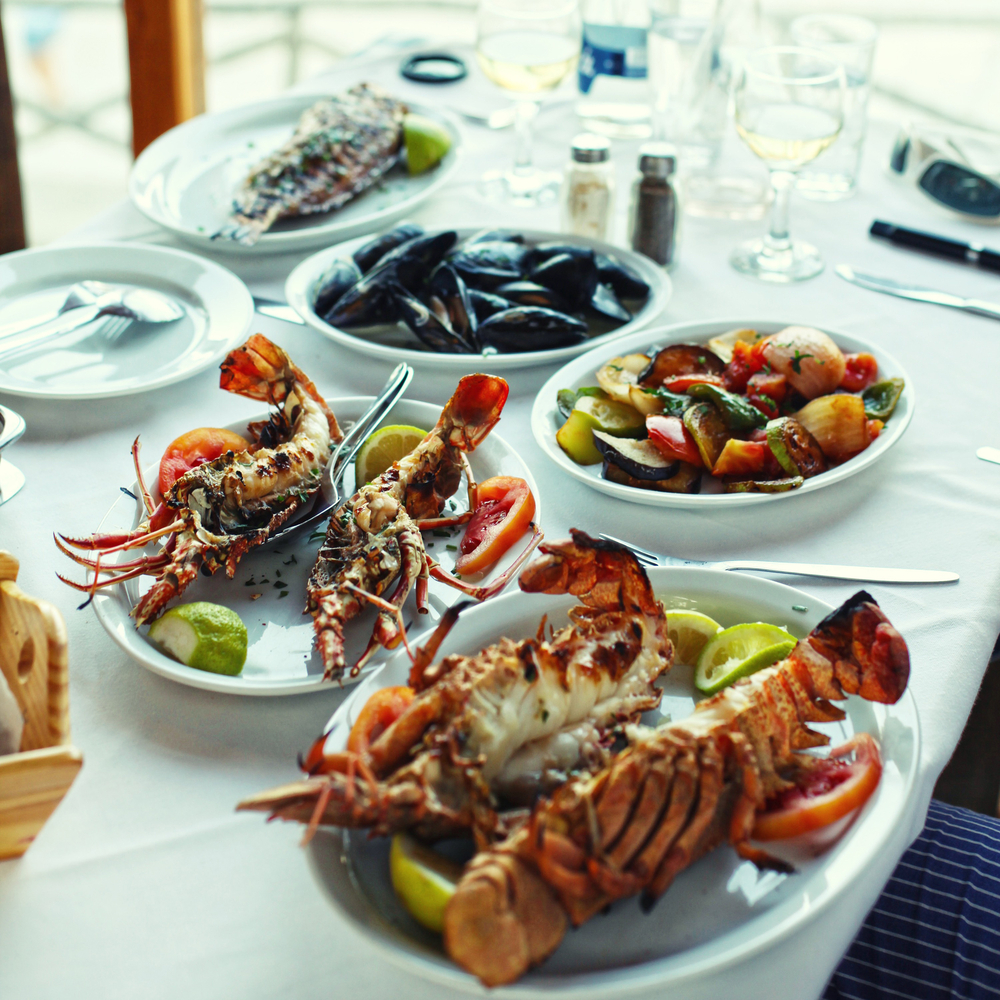
Across the mainland, I find other Hellenistic pleasures. On a cool night, I sit by a roaring fire at a hotel near Parnassos the largest ski resort in Greece, wandering into the nearby village the next day. There, I pop into a small restaurant for a bite of the best, melty, fire-kissed halloumi I’ve ever had, the semi-ripened sheep’s cheese finished on the grill.
Even in Athens—a bustling city where visitors often stay just long enough to see the Acropolis, then make a bee-line to the beach—I find plenty of reasons to tarry.
Starting in the heart of Plaka, the historic heart of the city, I eat and drink my way through the back lanes and hidden squares, the Parthenon soaring on a hill just above it all. At Brettos, I pull up a stool to the backlit bar and try a series of ouzos, enjoying the anise spirit—the national drink—at the oldest distillery in the country. Then, tucked away on a very narrow side street not far from the mayhem of Monastiraki Square, I slide into Six Dogs. Feeling a little like a speakeasy, this bar, restaurant—and secret garden—is set on a fully contained urban courtyard, the little rooms around it devoted to pop-up galleries. I browse, a draft beer in hand.
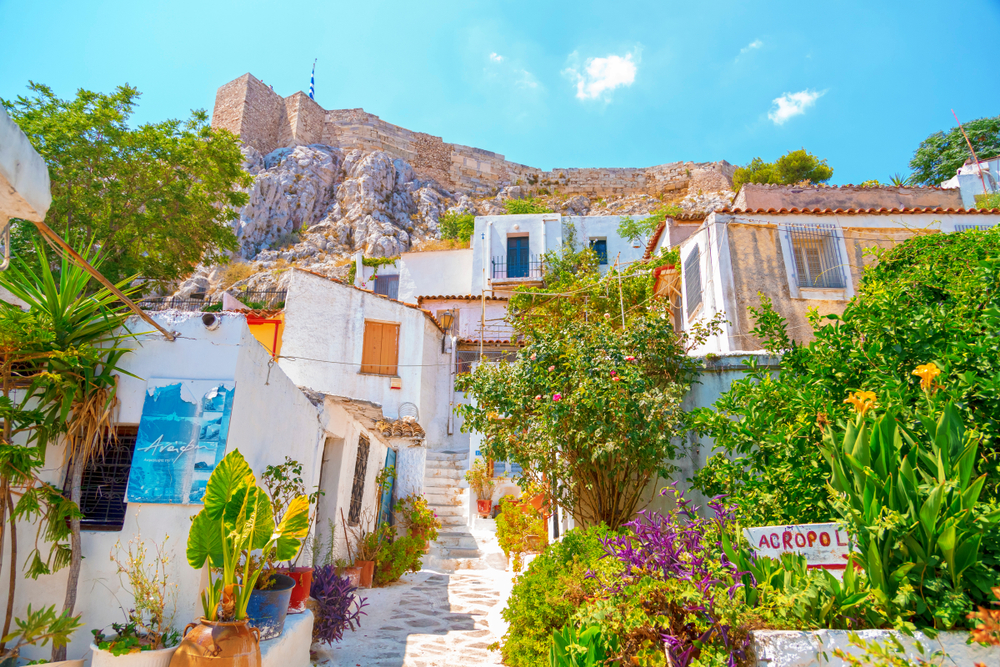
And I show up far too early for dinner at Zonars (since renamed Athenénée), a little further up the road, a once-glorious restaurant that devolved into a shabby coffee shop, now restored to its original 1930s Art Deco glory. Arriving to find the place half-empty at 10 o’clock at night, it’s full of hungry diners by midnight, all of us downing tender grouper and heaps of risotto and big, bone-in lamb shanks, sipping wine into the wee hours of the morning.
Hopping into a taxi and curling down to the coast, I spend a few days on the Athenian Riviera. Providing the pleasures of the islands without the need to board a ferry, this string of resorts and beach clubs is less than a half hour’s drive from Plaka.
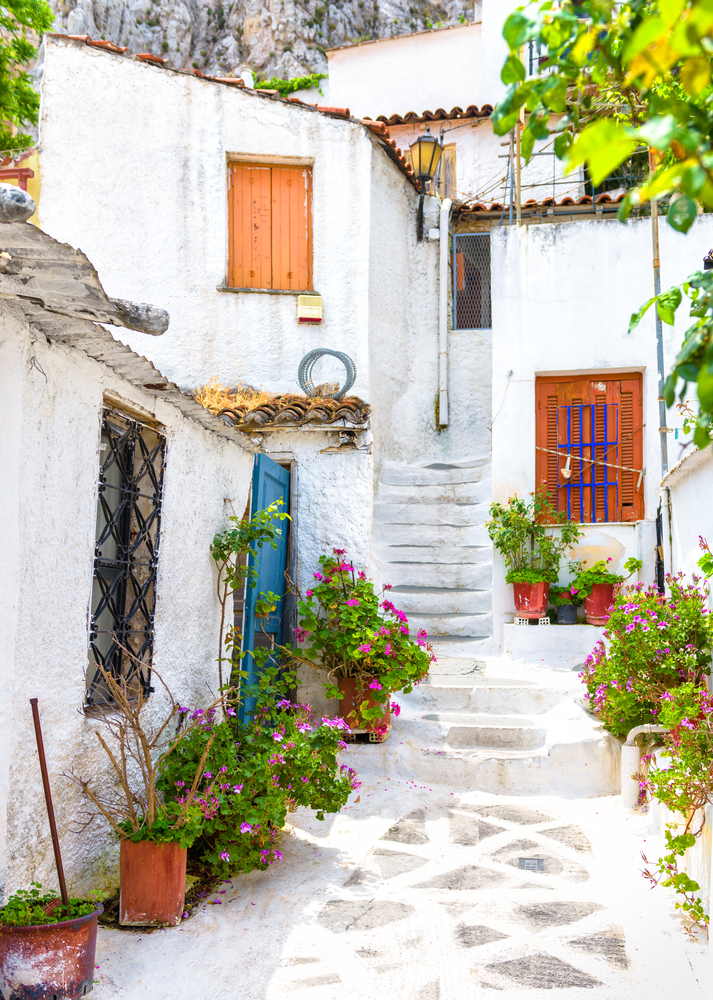
And it feels like a world away. With sandy beaches and super-fresh seafood and water as blue as anything you’d see on the islands, I enjoy the beach, grabbing a cabana and soaking up the sun. I dine on octopus and squid, and feta and moussaka, among locals in the super-cool nearby neighborhood of Glyfada, swimming in the warm, spring-fed Vouliagmeni Lake, and bedding down for the night at the luxurious, newly reopened Four Seasons Astir Palace.
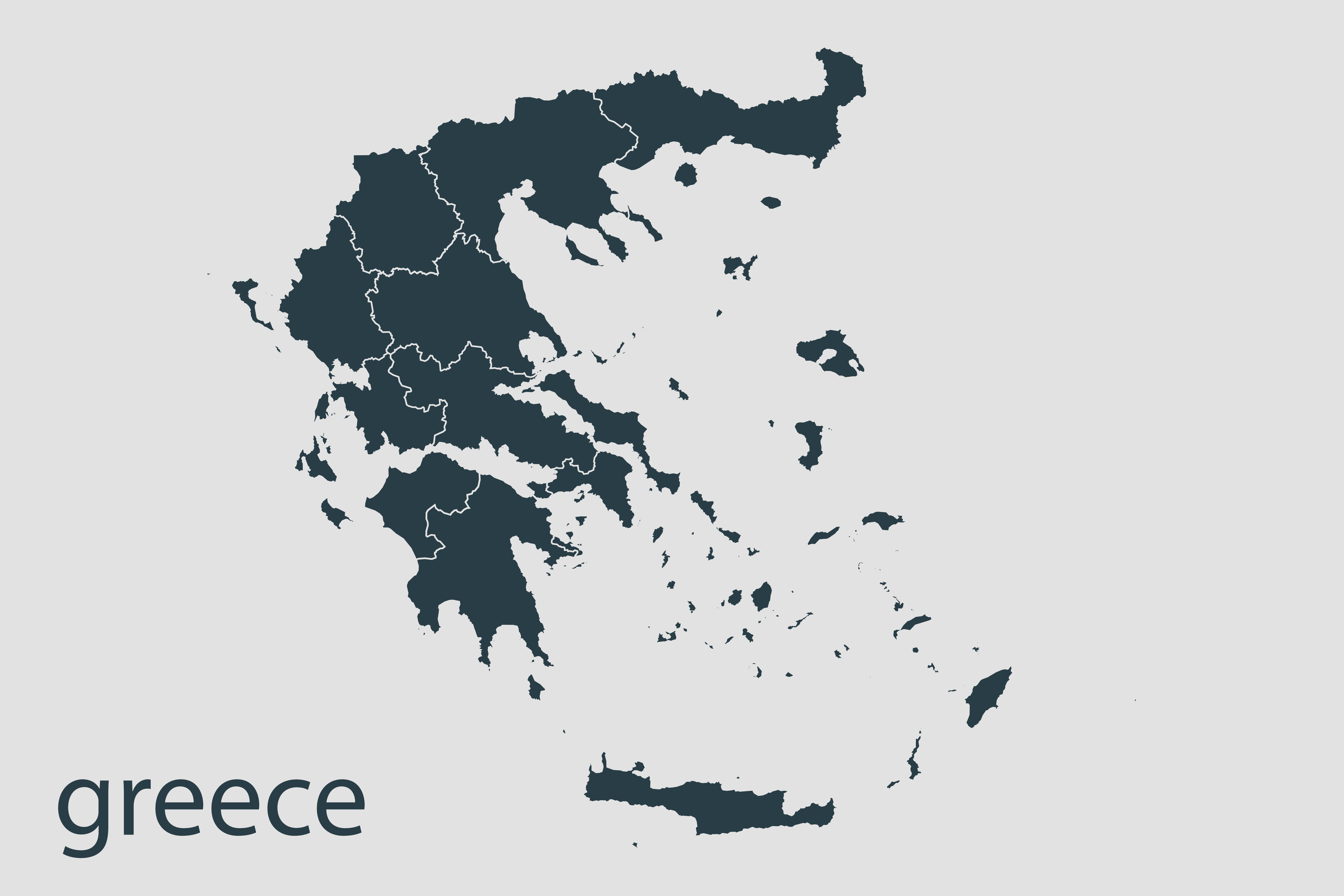
The islands? Yes, they beckon, especially the charms of nearby Spetses, just a short ride away, as well as the rugged pleasures of far-flung Crete. But for now, away from the crowds on Santorini, no boat to miss, or flight to catch, I’m happy to just sit here and soak up the sun.
Toronto-based writer Tim Johnson is always traveling, in search of the next great story. Having visited 140 countries across all seven continents, he’s tracked lions on foot in Botswana, dug for dinosaur bones in Mongolia, and walked among a half-million penguins on South Georgia Island. He contributes to some of North America’s largest publications, including CNN Travel, Bloomberg, and The Globe and Mail.





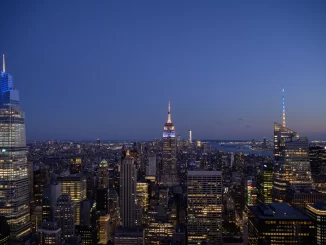
Be the first to comment